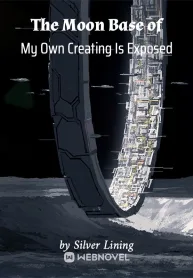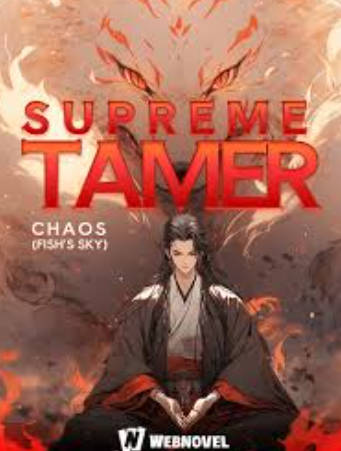Chapter 355 Shots Fired
Thanks to the early interception of the Chinese J-20s, the presidential jet’s trip was smooth. They hadn’t faced any further interference during the last 45 minutes or so of their approach and landing. Once Eden One had landed, the fighter escort refueled and, with the permission of the host country, took up patrol duties for the duration of the diplomatic visit in order to prevent any incursions that could possibly threaten Alexander or Sarah.
......
As the Edenian visit was beginning, complete with all the pomp and circumstance surrounding high-level diplomatic missions, an entirely different atmosphere prevailed in the offices of the military leadership of China. They had received the debriefing notes on the short, but significant, encounter with the Edenian fighters near Taiwan and were scrambling to figure out exactly what had happened, and how. Their brand-new stealth interceptors had been... intercepted. And not only that, they were locked on by a targeting system from enemies that they couldn’t even detect! It was a great loss of face for a country that placed great value on their national prestige.
“So you’re telling me they discovered us, but we failed to discover them?” Zi Jinping asked as he slapped a folder onto his desk and massaged his temples with his other hand.
“Yes, leader. That seems to be the case,” the Minister of National Defense answered.
“Do you believe it?” Zi asked.
“Based on the pilots’ expressions during their debriefing, and the flight recordings, that seems to be what happened. But it’s still difficult to believe that we couldn’t discover their planes when they’re flying the same Russian Su-35s that we’re already intimately familiar with. After all, we have some of those, too, so we know for a fact that we can see them on our radars,” the minister replied. In order to escape the blame, he would just give the president all the information he had at hand and allow him to come to his own conclusion. That way, if that conclusion were to later be found incorrect, it wouldn’t be the minister’s fault.
He was definitely a seasoned politician and had vast experience with buck-passing.
“Apparently, they’ve modified their jets to make them invisible to radar. That isn’t a good thing at all—they’re currently patrolling Chinese Taipei, so if we continue our air incursion plan...” the head of the MSS began, then paused to take a deep breath.
“They’d be well within their rights to shoot our jets down with the justification that they pose an imminent threat to their president. They’re only required to give a single warning before firing, since they’ve been granted permission by the government to be there,” he finished.
Zi Jinping’s face darkened. “So we can’t continue our incursions for now?” he asked.
“Unfortunately, no,” the minister of defense answered.
“I’ll add that to the list,” Zi Jinping said with a frown. “Right now, we still have a use for the Edenians. Taipei gave them permission to patrol their airspace, right?”
“Yes.” novE.lb(1n
Zi Jinping turned to the minister of national defense and said, “Find some martyrs among our pilots. They have a final job to do. It’s time to bring Chinese Taipei back to the fold.”
The minister of national defense thought for a moment, then saluted and left the room. He had been given his orders, and didn’t need to know about anything else that would be said in the briefing room.
......
Three days later, somewhere over Taiwan.
Archangel 02 had discovered a Chinese J-20 over Taiwan. The previous two days had been peaceful, with no Chinese incursions, so the Edenian pilot had been caught slightly off guard when his AI assistant, who had been monitoring his long-range sensor array, notified him that a J-20 had been picked up on his LIDAR.
He immediately locked his targeting reticle on the J-20 through his HUD AR display and broadcast a warning on all frequencies. “Unidentified aircraft, you have entered a restricted airspace. I repeat, you have entered a restricted airspace. You have thirty seconds to reverse course and return. This is your only warning, if you do not comply you will be fired upon. I repeat, you will be fired upon.”
Then he switched to the secure intrasquadron q-com channel and reported, “Contact, contact, contact. Chinese J-20 stealth fighter on course for Taipei. I issued the warning—what are your orders, commander?”
“Close range and fire a warning shot with your guns,” Archangel 01, the leader of the Archangel squadron ordered.
“Roger, closing.”
Archangel 02 adjusted his course to intercept the J-20 and pushed the throttle of his jet to the stops and soon reached Mach 2.8, where he backed it off and entered supercruising mode. The current “fastest” jet on the planet was the Lockheed Martin F-22 Raptor, which could supercruise at Mach 1.8 or fly at Mach 1.2 with afterburners, so the pilot judged that Mach 2.8 would suffice. It would allow him to intercept the Chinese interceptor over an uninhabited area while keeping at least some of his jet’s capabilities hidden.
He soon got a visual on the J-20, which had made no effort to adjust its heading or speed. Aiming his targeting reticle ahead of the intruding Chinese, he fired a burst of tracers from his guns that passed ten meters in front of the target.
The Chinese jet turned to engage him as the other three pilots on patrol for the day also reported contacts of their own.
“Incoming intruders are hostile, engage at will,” came the order from Archangel 01.
“Roger, engaging,” chorused the other three pilots in the squadron.
Archangel 02 went vertical and gained 1000 feet of altitude, bleeding speed as he did so, then executed a hammerhead turn and came around behind the target. He reacquired lock on his target and released a missile as he reported, “Archangel 02, fox one.”
Then... there was no then. What had once been a J-20 briefly became a firework, then a rain of small pieces of metal that, perhaps years later, old men and women with metal detectors would dig up on the shore of Taiwan outside of Taipei and wonder what they once were.
Other than that brief interlude, where the Edenian patrol shot down four Chinese intruders, Alexander’s Taiwan visit was peacefully brought to a conclusion. He had signed a mutual defense treaty with Taiwan in addition to the standard trade agreements he’d been offering to all of the nations on his whirlwind world tour. In addition to that, he had set up an embassy and issued a public declaration recognizing the Republic of China as an independent country that was in no way beholden to the People’s Republic of China.
......
The journey to North Korea was relatively peaceful. The escort pilots had handed off patrol duties back to Taiwan and the flight was smooth. The interdiction fleet made no attempt to stop the Edenian delegation as it passed over them, the escorts sarcastically wagging their wings in salute to the American and Japanese fleets as they went. They had all received the same notification from their assistant AIs that all observation instruments on the ships had been focused on them, but the pilots only snorted and wished them luck.
The naval escort, on the other hand, couldn’t say the same. After Eden One and its escorts had passed the interdiction fleet, the naval escort joined the other task group that had been sent ahead of Alexander’s visit. That fleet had been in a standoff with the American fleet outside Namp’o, the nearest port city to Pyongyang, for a few days before their “reinforcements” had arrived.
Heedless of the tension on the sea, Alexander’s delegation smoothly landed at the Korean People’s Army Air Force Headquarters in Pyongyang, where they were met by the Aegis team that had been sent ahead prior to the Taiwan visit. The Aegis team leader that had been in country longer pulled the presidential Aegis team leader aside for a briefing on the situation as Alexander stepped into his car in the Edenian motorcade and, with his extra security team, headed toward the Mansudae Assembly Hall.
Unlike the relatively peaceful and enthusiastic reception Alexander had received in Taiwan, an almost palpable sense of tension hung in the air here.
Even the weather seemed to agree, as it was unseasonably cold, overcast, and windy. He left his car, dressed in a midnight blue suit and a black greatcoat that hung from his shoulders to his knees and topped everything off with a striped wool scarf in the colors of the Edenian flag. He put on his best professional smile and waved for the flashing cameras of the state media, who were there to document Kim Jong-Un’s first visit from a foreign dignitary.
“Welcome to the Democratic People’s Republic of Korea, President Alexander,” Kim Jong-Un’s sister greeted in passable English.
“Thank you, Miss Kim.” Alexander shook her hand, then gestured for her to join him as they entered the assembly hall.
......
A few hours later in an underground bunker, somewhere near the DMZ.
A North Korean General answered a red phone on the first ring. His sole job for the past three years had been to sit in that office and stare at the red phone on the desk in front of him. There was nothing else in the room; no computer, no cellphone, nothing. Only a desk, a chair, and a hanging light fixture marred the dreary gray reinforced concrete of the windowless underground room. An ashtray that was overflowing with cigarette butts was on the opposite side of the desk, accompanied by an opened pack of counterfeit Huanghelou Xianliang Ban cigarettes.
“Yes.... I understand.... Yes, sir. Right away, sir. For the unification!” He stood and saluted, then disconnected the call and dialed a new number, one that he had memorized years before but had never needed to dial... until today.
When the voice on the other end of the phone answered, he said one word: “Fire.” Then he lit a cigarette and sat back in his chair; they may be counterfeit, but they still reminded him of home.
Within minutes, almost ten thousand guns and MLRSs of the Democratic People’s Republic of Korea Army simultaneously pulled their triggers. Other than the four thousand pieces of self-propelled artillery that had been moved to the coast to fend off the trade interdiction fleets of the United States and Japan, the rest of the over fourteen thousand guns were still trained on South Korea.
The guns spoke, shaking the very ground they were braced upon. It was the first round of shots in nearly a century of cease-fire between North and South Korea, but it would not be the last.






